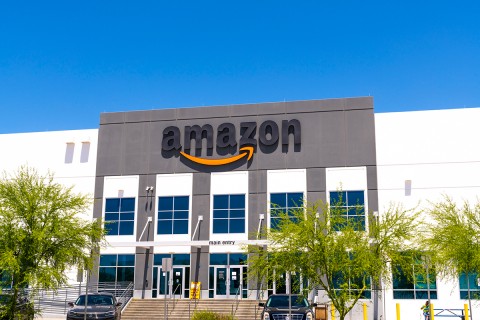
At press time, 5,805 Amazon warehouse employees in Bessemer, Alabama, were voting on whether to join the Retail, Wholesale, and Department Store Union. If they do, they will work at the company’s first unionized facility in the United States. Whether or not they do, similar votes will likely follow at other Amazon locations.
The seven-week voting process has been contentious. Amazon has aggressively lobbied workers to oppose the union, posted signs to captive audiences in bathroom stalls, and even arranged for shorter red lights at traffic signals outside the facility, where organizers were going car to car. The company points out that its starting pay is more than twice the federal minimum wage and that it extends benefits to some hourly employees. “Amazon already offers what unions are requesting,” company spokeswoman Heather Knox told the Washington Post.
Read our latest issue or browse back issues.
But unions aren’t just about compensation. They’re about giving workers a voice in their own workplace, the agency not just to make requests, as Knox puts it, but to be at the table making decisions. At the Bessemer facility, breaks are 30 minutes long—and the break room is often a ten-minute walk away. Some employees can’t find time to go to the bathroom. All are constantly surveilled. “It’s really dehumanizing,” Rep. Andy Levin (D., Mich.) told NPR after visiting the facility.
What unions offer workers is the power to create a more humane workplace. Collective bargaining nudges employers to engage them more like people and less like a commodity. At their best, unionized workplaces embody partnership between workers and management: shared power and a shared stake in the company’s well-being.
Numerous church bodies have long supported the right to organize. They place a priority on the dignity of workers, dignity that demands agency and fair treatment. Like faith communities, unions promote solidarity—a direct challenge to self-centered individualism. They also recognize that human beings are flawed and that unchecked power creates problems. Even the most benevolent corporate boss can’t be counted on to stay that way voluntarily. Unions wouldn’t call this problem sin, but from a Christian perspective that’s what it is.
As private-sector unions have declined, so has the middle class they helped build. For decades, the center-left consensus has been that unions aren’t coming back, that we need to find other ways to promote socioeconomic equity. President Biden has taken a different tone, offering the most straightforward endorsement of labor rights we’ve heard from a president in many years. “Unions lift up workers,” he said in February. He also nominated Marty Walsh to be the first union member to lead the Department of Labor in almost 50 years.
Meanwhile, RWDSU spokeswoman Chelsea Connor reports that more than 1,000 of Amazon’s 400,000 workers around the United States have been in touch about organizing their own workplaces. If the Bessemer vote starts a trend, it could become one of the largest unionization efforts in US history. Private-sector unions may not be what they once were, but they still have a crucial role to play in promoting dignity and fairness at work.
A version of this article appears in the print edition under the title “Organizing Amazon.”






